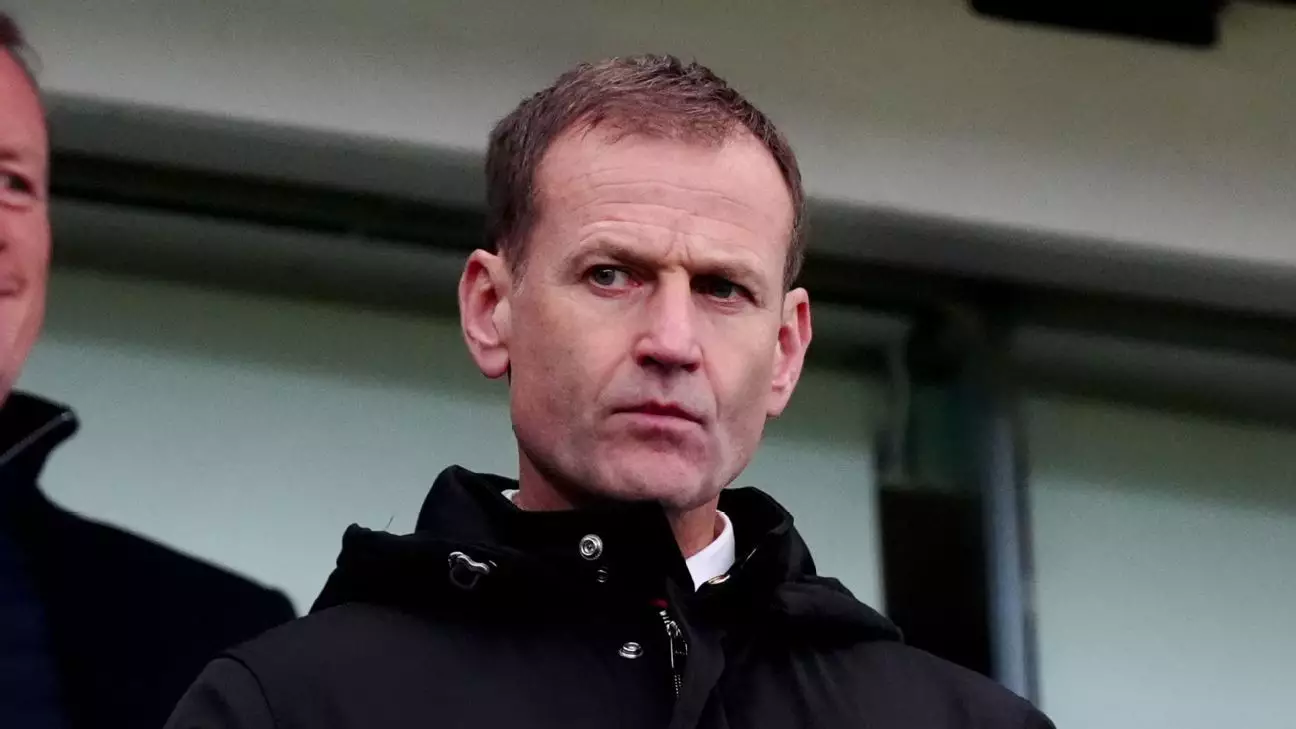Dan Ashworth’s departure from his role as sporting director at Manchester United after a mere five months is a noteworthy event in the world of football administration. Joining the club in July 2023—following the contentious settlement with Newcastle United that reportedly involved millions—Ashworth was envisioned as an integral player in the transformative agenda of Sir Jim Ratcliffe. However, his brief tenure raises questions about the efficacy of such sweeping changes in an environment as complex as Old Trafford.
Ashworth’s main charge was to navigate the intricacies of a volatile football landscape at a club desperate for success. Together with technical director Jason Wilcox and CEO Omar Berrada, Ashworth constituted a strategic leadership team thought to be foundational for a new era at Manchester United. Unfortunately, this vision fell apart sooner than anticipated, leading to Ashworth’s exit just weeks after the onboarding of new head coach Ruben Amorim.
The Weight of Expectations and Rapid Changes
The fleeting nature of Ashworth’s participation illustrates the formidable expectations placed upon football executives at high-profile clubs. His arrival coincided with a significant reshuffling of the management structure, necessitated by the dismissal of former coach Erik ten Hag. The pressure was immense, and Ashworth’s early decisions became the subject of scrutiny before he even had a full season to implement his vision.
With the team struggling perilously in the Premier League—sitting 13th with their lowest points tally after 15 games since 1986—the call for immediate results proved to be an overwhelming aspect of his role. This context of urgency certainly muddied the atmosphere, suggesting that Ashworth’s ability to foster long-term strategy was undermined by a desperation for immediate success.
Transfer Market Decisions and Their Implications
During his brief time at the helm, Ashworth was central to a substantial summer transfer strategy that resulted in five major signings, totaling over £180 million (approximately $229.3 million). Players like Matthijs de Ligt and Manuel Ugarte were brought in with high expectations. However, the inability of this talent influx to inspire an immediate turnaround left fans and management questioning the choices made.
Moreover, Ashworth’s role in selecting Amorim as Ten Hag’s successor has drawn criticism. His alignment with the new head coach’s philosophy and tactics had yet to be tested, but early indications of disharmony and below-par performance left stakeholders uneasy.
Dan Ashworth’s quick exit from Manchester United serves as a cautionary tale, not only about the precarious nature of football administration but also the complexities surrounding leadership in high-stakes environments. The ambition harbored by clubs like Manchester United can lead to impulsive decisions, often at the expense of the strategic foresight necessary for sustainable success. Whether Ashworth’s departure is a harbinger of further upheaval or simply an anomaly remains to be seen; however, it undeniably underscores the challenges that permeate the corridors of one of the most storied clubs in football history.

